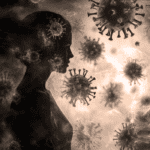Tuberculosis (TB) remains a significant health challenge in India, including Ahmedabad. Early detection and testing are crucial for effective treatment and preventing its spread. If you or someone you know is experiencing symptoms of TB, prompt testing and diagnosis can lead to faster recovery and reduce the risk of transmission. Here is everything you need to know about TB testing and how Tathaagat Infectious Diseases Clinic can help.
Why Is TB Testing Important?
If not tested and treated on time, TB can lead to significant health deterioration, depletion of various important body elements, different kinds of complications, permanent organ damage, and many a times can be life-threatening. TB remains one of the ‘biggest-killers’ even today. Also, there are forms of TB which are contagious, and early diagnosis is the key to stopping its
spread. Detecting TB early with validated tests ensures a more effective treatment plan, reducing the burden on both the individual and the community.
Common Symptoms of TB
Before getting tested, it’s important to recognize the symptoms that could indicate the presence of TB of the lungs, which is one of the most common forms of TB. These include:
● Fever and fatigue
● Unexplained weight loss
● Loss of appetite
● Night sweats
● Persistent cough lasting more than 3 weeks, Hemoptysis (coughing up blood)
● Chest pain
However, in patients with TB affecting organs other than lungs, the symptoms depend on the organ involved. If you experience any of these symptoms, it’s crucial to get tested for TB immediately.
Types of TB Tests
There is no blood test or skin test that can diagnose active TB. TB Gold (IGRA) or Mantoux test (Skin test), which are often ordered, do not diagnose or rule out the presence of active TB. Sometimes, they can be falsely positive due to various reasons. The diagnostic tests for TB can be divided into two major headings- radiological tests and microbiological / histopathological tests
Radiological tests
These include the following-
1. Chest X-ray (CXR):
A chest X-ray helps to diagnose pulmonary TB, tuberculous pleural effusion and sometimes pericardial effusion. Though CXR is one of the first and basic tests discovered, it many a times, may miss the abnormalities. Also, it may not give a detailed information about the exact extent of the disease.
2. Ultrasound (USG):
USG of abdomen and chest helps in the diagnosis of abdominal TB and TB pleural effusion respectively. It is a basic and cost effective, yet a very important investigation even today.
3. CT scan of chest / abdomen / brain / bones etc:
This test helps in picking up the lesions of TB much more effectively than the CXR, and sometimes USG. Also, it gives a very detailed information of the disease, including the information about the area from which the samples should be obtained for sampling.
4. MRI of brain / spine/ joints/ pelvis/ muscles:
MRI is the preferred radiological test in certain kinds of TB. It gives more information than the CT scan when chosen correctly.
5. PET scan:
This is the most recent addition to the armamentarium of radiological tests for TB diagnosis. This test is ordered in certain patients when there is strong clinical suspicion of TB, but none of the aforementioned tests can pick that up. Though costly, it is the most sensitive scan for diagnosis.
Microbiological / Histopathological tests
These tests are carried out on the sample obtained for testing. For example, sputum is tested for diagnosis of lung TB. They are important for the confirmation of TB, and also give information about the presence of Drug-resistant TB (radiological tests can never be 100% confirmatory with the diagnosis). These include the following
1. ZN Stain:
Primary staining helps for early detection of the tuberculosis bacteria.
2. GeneXpert Test:
The GeneXpert test is a rapid molecular test that detects TB and resistance to Rifampicin, one of the primary drugs used to treat TB. It’s particularly helpful for diagnosing multidrug-resistant TB (MDR-TB) and provides results within a few hours. Gene Xpert XDR is a relatively new test, which gives the information of few other drugs within hours.
3. Line probe Assay:
This is another rapid molecular test.
4. TB (AFB) Culture:
This is the gold standard test for diagnosis. However, it takes days to weeks to become positive. Once positive, it confirms the presence of active TB. Also, susceptibility testing for various drugs can be done once the culture turns positive.
5. Histopathology from biopsy specimens:
Biopsy from the lymph node, tissue, bone etc is important, especially when microbiological tests remain negative due to low sensitivity.
Why Choose Tathaagat Infectious Diseases Clinic?
At Tathaagat Infectious Diseases Clinic, we specialize in the diagnosis and treatment of tuberculosis (TB) and other infectious diseases. Our clinic offers advanced diagnostic tests like GeneXpert ultra, GeneXpert XDR, LPA and AFB culture to ensure accurate results. With years of experience in managing TB cases, our specialists provide personalized care, guiding you through the entire treatment process. If diagnosed, our clinic offers comprehensive treatment plans, including a combination of anti-tuberculous medications and ongoing monitoring to ensure the most effective therapy. We also provide support for managing drug-resistant TB, ensuring you receive the best care possible.
Take the First Step Towards Recovery
Don’t wait for TB to progress. Early testing and treatment are essential for a quicker recovery and preventing its spread. Contact Tathaagat Infectious Diseases Clinic today to schedule a
consultation and get tested. Our experienced specialists are here to provide accurate diagnoses, timely testing, and personalized treatment plans to help you recover. Your health is our priority! Call us at 9664630466 to book an appointment today.







